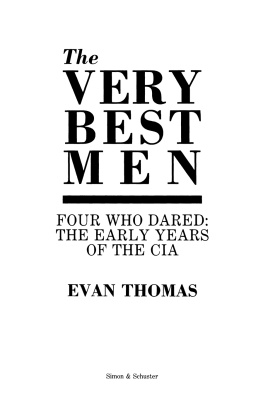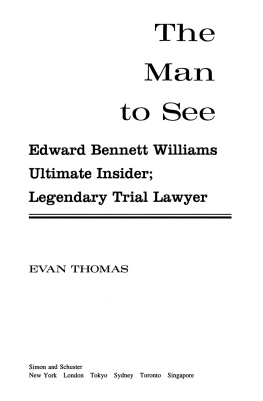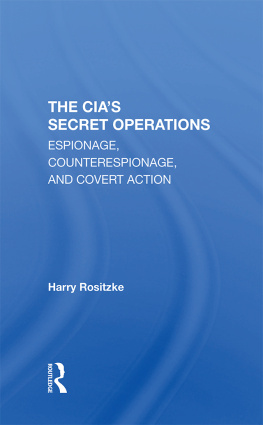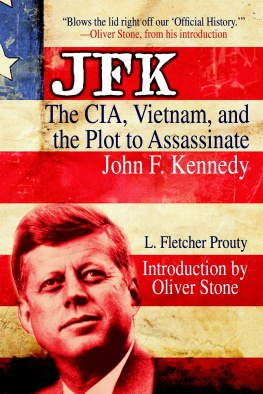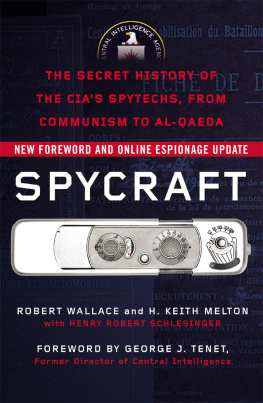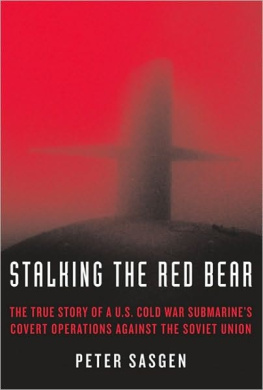Thank you for purchasing this Simon & Schuster eBook.
Join our mailing list and get updates on new releases, deals, bonus content and other great books from Simon & Schuster
C LICK H ERE T O S IGN U P
or visit us online to sign up at
eBookNews.SimonandSchuster.com
T O L OUISA AND M ARY
CONTENTS
A LSO BY E VAN T HOMAS
The Wise Men
(coauthor with Walter Isaacson)
The Man to See
INTRODUCTION
G ENERAL W ILLIAM W ILD B ILL D ONOVAN, the founder of the Office of Strategic Services, Americas World War II spy agency, liked to hire Wall Street lawyers and Ivy Leaguers to commit espionage. You can hire a second-story man and make him a better second-story man, Donovan explained, referring to the cat burglars sometimes employed by investigative agencies. But if you hire a lawyer or an investment banker or a professor, youll have something else besides. Donovan wanted a higher class of men; although the OSSers were teased for being socialites, they tended to be confident and intelligent. On the other hand, they didnt have much of a knack for, or experience with, the planning and execution of second-story jobs.
Donovans hiring philosophy was embraced by the OSSs Cold War successor, the Central Intelligence Agency. Its top ranks were filled with Wall Streeters, many of whom were OSS veterans, and academics from leading eastern colleges. They were especially notedat once admired and resentedat the upper levels of the Directorate of Plans, the CIAs operations arm, also called the clandestine service and, by reporters of a later era, the Department of Dirty Tricks. Operating in secret, they were not public figures, though in their heyday, the 1950s and early 1960s, they were very powerful. Within the CIA, the men who ran the clandestine service were known for their courage and lan, as well as for their occasional recklessness.
This is the story of four of these men: Frank Wisner, Desmond FitzGerald, Tracy Barnes, and Richard Bissell. It begins with Wisner at the outbreak of the Cold War. An OSS veteran who had seen firsthand the Russian takeover of Eastern Europe as an American spymaster in Romania at the end of World War II, he felt an urgent, almost personal need to stand up to the Soviets. The OSS had been abolished after the war, replaced by a very weak intelligence organization lacking in manpower or leadership. Wisner started a small, highly secret agency, blandly named the Office of Policy Coordination (OPC) to take a more activist role battling Soviet subversion. His outfit was later merged into the CIA, and in 1951 Wisner became the agencys chief of covert action.
Wisner believed it was necessary to fight back with the same tools that the Russians used: espionage, blackmail, bribery, sabotage, and propaganda. Following Donovans dictum, Wisner in turn recruited FitzGerald and Barnes, both Harvard-trained Wall Street lawyers who had fought bravely in World War II, and Bissell, a brilliant Yale economics professor who helped organize the Marshall Plan to rebuild Europe after the war. Together, these men built the clandestine service, which extended American power around the world; in many developing countries by the late 1950s, CIA station chiefs functioned as modern proconsuls, influencing, if not dictating, affairs of state.
These men were not a secret cabal. Their views on the need for covert action against the Soviet Union and communist insurgencies around the world were widely shared at the upper levels of government and generally accepted by the politicians and press of the era. If their masters in Congress and the executive branch did not know precisely what the CIAs spymasters were up to in this era, it is in part because they did not wish to know. Nonetheless, it is also true that the men described in this book took their freedom and ran with it.
This group biography is intended to be in some ways a companion to The Wise Men, a book I wrote with Walter Isaacson in 1986 about six men who helped rebuild Europe and shaped U.S. foreign policy after World War II. The Wise Men were statesmendiplomats and policymakerswho created a doctrine of containment which, over the long run, helped vanquish Soviet communism without a global conflagration. The four CIA officials portrayed in this book came from similar backgrounds, shared the same worldview, and were devoted to the same cause. But they had the difficult, messy job of waging a real if secret war against communism, not just in Europe but all over the world, with results that were often frustrating and sometimes tragic.
There are many good histories of the CIA in this period, and there will be more as still-secret agency records are eventually disclosed. My purpose here is different. This is in many ways a social history. It is my belief that the actions of the men who ran the CIA during the early Cold War cannot be understood without examining the web of friendships, the class and culture that made them. Too much can be made of the old school tie, but it is difficult to imagine an environment in which shared values and associations counted for more than in the clandestine service of the CIA in the 1950s.
Public service was supposed to be the ethos in schools like Groton in the era before World War II, when Richard Bissell and Tracy Barnes were students there together. On Sundays, the Rector preached about the duties of privilege. Most boys only half listened and headed off to make money or to spend it. But some served memorably.
For Barnes and Bissell, as well as for Wisner and FitzGerald, the catalyst was World War II. They found in their wartime experiences a sense of drama and meaning that could not be matched back at their law firms or lecture halls in peacetime. They saw the opportunity of American predominance and reached out to seize it.
The experience produced a type that is quite at odds with that stereotype of Cold War fiction, the deeply cynical spymaster. George Smiley and his ilk are jaded and spent, no longer able to tell right from wrong, or much interested in trying. The title of John le Carrs novel The Honourable Schoolboy is meant to be read with appropriate irony. But in the beginning, at least, Wisner, Bissell, Barnes, and FitzGerald were full of conviction. We didnt talk about it, but we felt like we were at the center of the world, just as we feel like we arent now, said Susan Mary Alsop, a close friend. The feeling then was, its our responsibility. What should we do about the Italian elections?
They believed they were moral. The title used by former CIA Director William Colby, a Princeton graduate and OSS veteran, for his memoir of the CIAs early days, Honorable Men, is not meant to be ironic in the least.
Wisner, Bissell, Barnes, and FitzGerald could not exist in modern Washington, with its layers of bureaucracy and inquisitive press. They were their own power centers, recalled Ed Applewhite, a former deputy inspector general of the CIA who worked with all four men. They arrogated to themselves total power, with no inhibiting precedent. They could do what they wanted, just as long as higher authority, as we called the president, did not expressly forbid it. They were extremely aristocratic in their assumptions, extremely parochial about life between men and women, very romantic and arrogant. They had a heaven-sent obligation and, God knows, what opportunity! They ate it up. Asked how they seemed so cheerful under such stress and adversity, their White House counterpart, National Security Adviser McGeorge Bundy, answered, They were having a marvelous time.
Patriotic, decent, well-meaning, and brave, they were also uniquely unsuited to the grubby, necessarily devious world of intelligence. They were innocents, said John Bruce Lockhart, a senior official in the British Secret Intelligence Service who knew the four men from his service as the SIS liaison to the CIA in the 1950s and as chief of operations in Europe, the Middle East, and Africa. By innocent, Lockhart meant incapable of wickedness and naive about the difficulties and risks of what he called a life in secrets.
Next page
